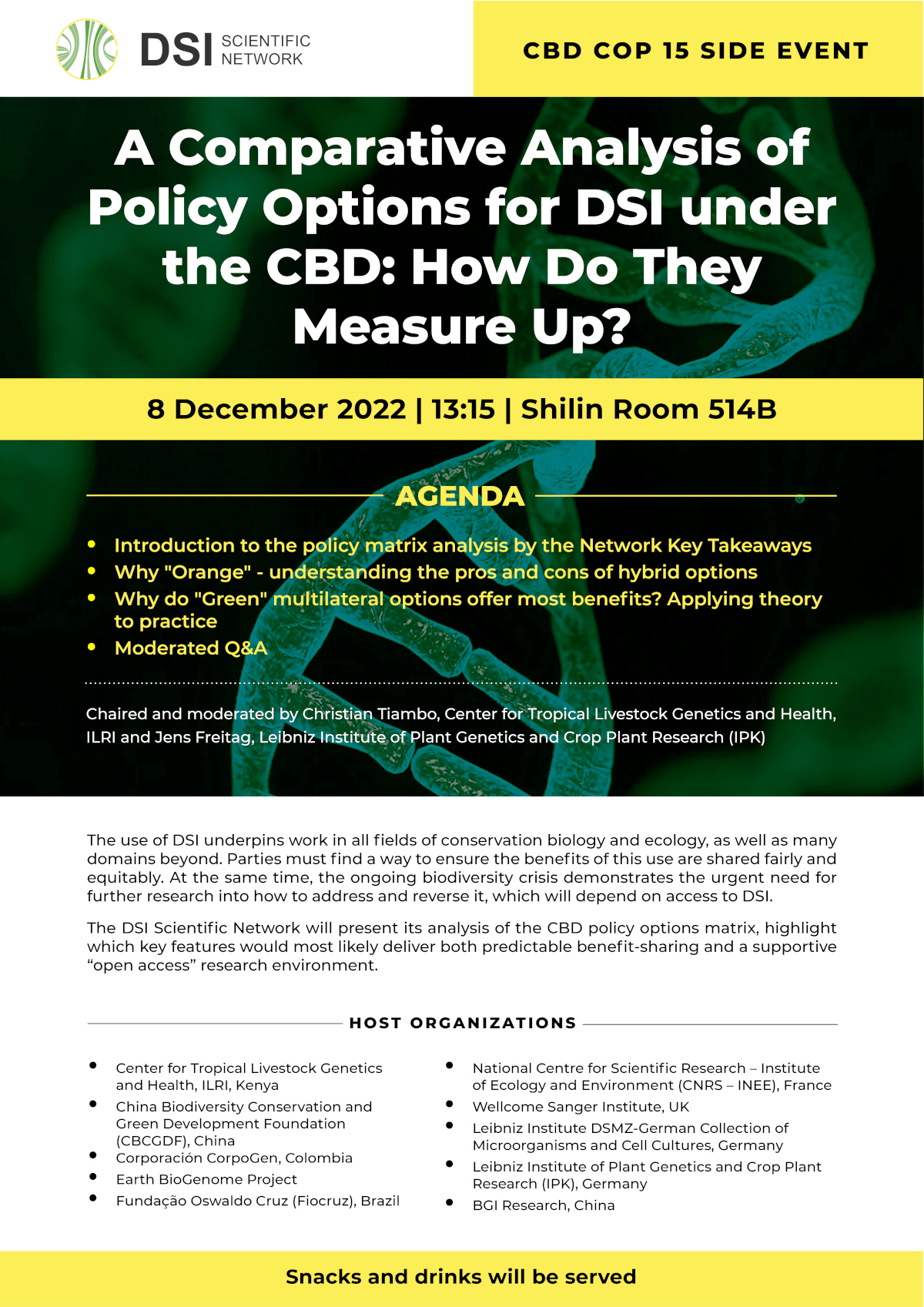The DSI Scientific Network has conducted a systematic analysis of the proposed solutions using the matrix, to identify which would best meet the goals of the Post-2020 Framework. To our knowledge this is one of the first such analysis published, and therefore constitutes an extremely useful tool in informing discussions on DSI under the CBD. The purpose of this side event was to present the findings of this analysis, the methodology through which they were arrived at, and the implications for the decisions being negotiated at COP 15. It was an opportunity for Parties and other stakeholders to hear from those who work regularly with DSI as to what the concrete effects of proposed solutions will be on ABS in terms of feasibility, efficiency, and effectiveness.
Date: Thursday 08.12.22 at 13:15 Montreal Time
Room: IGOs Meeting Room-514B
Find more information about the side event here.

